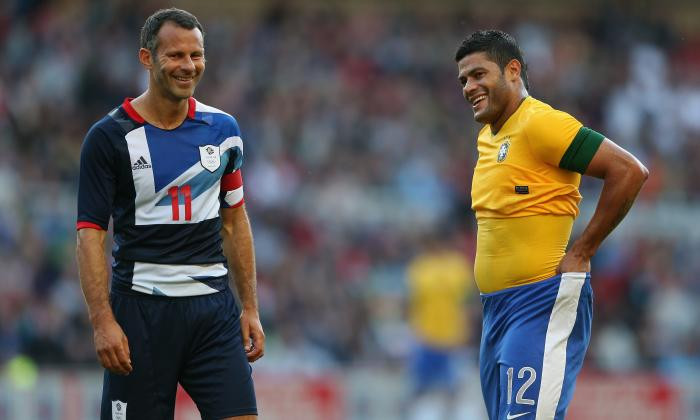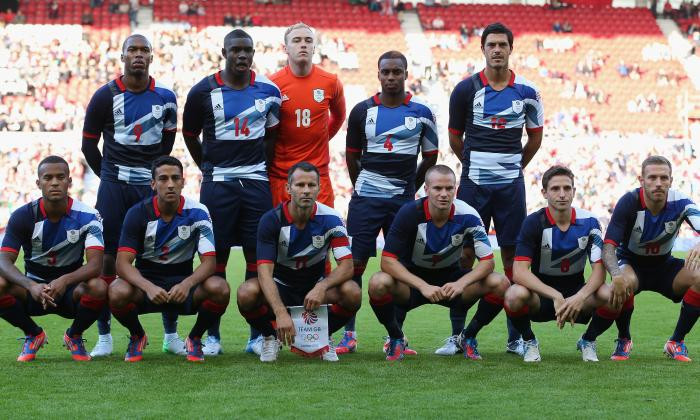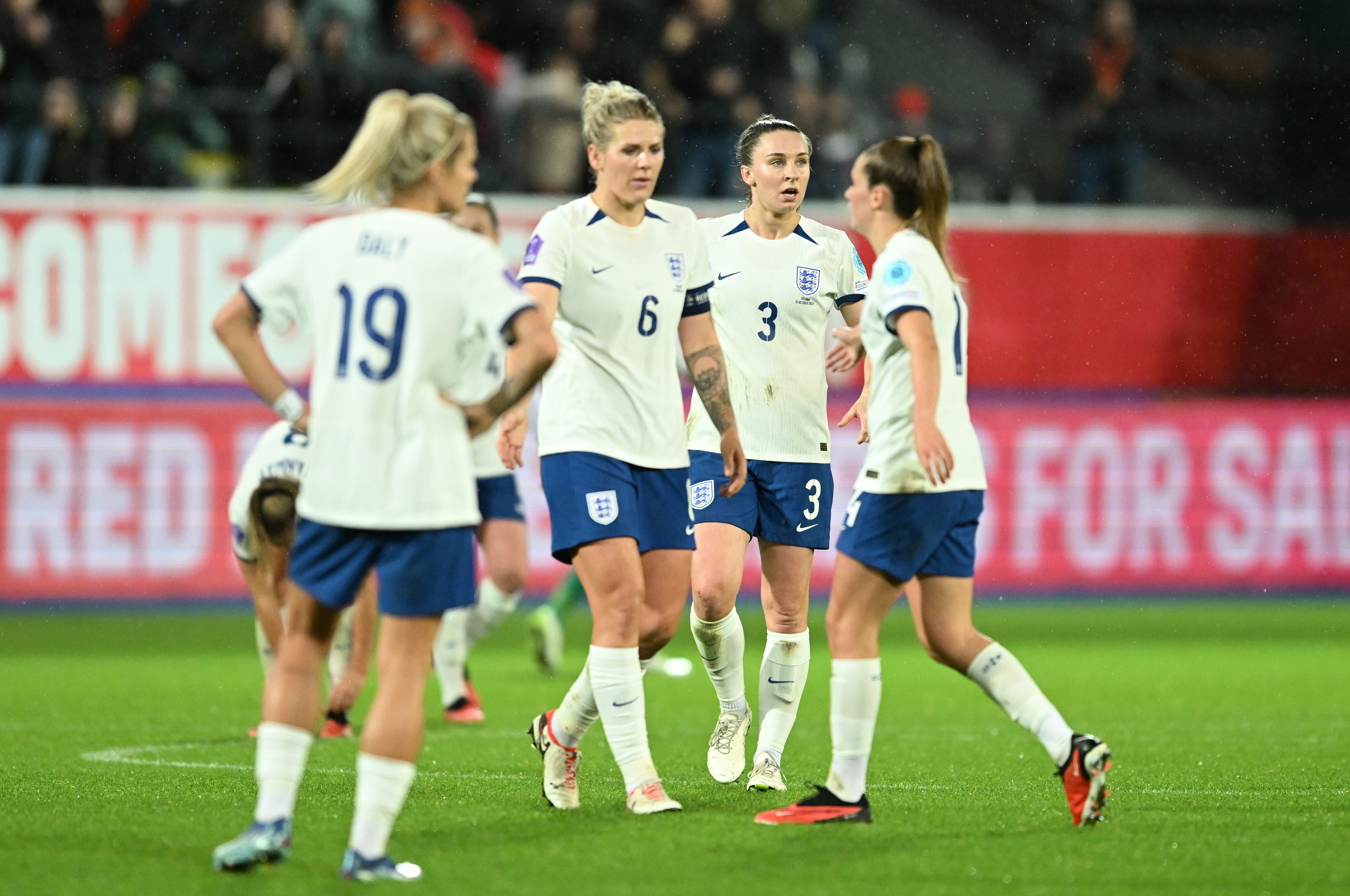Answering your question, Great Britain (Team GB) will not be participating in either the men’s or women’s football tournament at the Paris 2024 Olympics. This article explores the reasons behind Team GB’s absence, delving into the complex relationship between the UK’s football associations and the International Olympic Committee (IOC), offering clarity for fans in the USA and beyond. This guide from CAUHOI2025.UK.COM clarifies the situation surrounding Team GB and Olympic football.
1. Why No Team GB in Olympic Football? The Complexities Explained
Unlike the FIFA World Cup or the UEFA European Championship where England, Scotland, Wales, and Northern Ireland compete individually, the Olympics operate under the banner of Great Britain. While Team GB enjoyed success in early Olympic football, winning gold in 1900 (unofficially), 1908, and 1912, the situation evolved over time.
1.1. The Home Nations’ Concerns
Scotland, Wales, and Northern Ireland eventually voiced concerns that competing as a unified Team GB in the Olympics could jeopardize their independent status within FIFA and UEFA. This led to a cessation of Team GB’s regular participation in Olympic men’s football from the 1970s onward.
1.2. London 2012: A Temporary Return
The 2012 London Olympics saw a brief resurgence of Team GB men’s football, fielding a squad comprised of English and Welsh players. However, this was a one-off agreement, and similar arrangements haven’t been reached for subsequent Olympic Games. They crashed out on penalties to South Korea in the quarter-finals.
1.3. Women’s Football: A Similar Story
While Team GB’s women’s team participated in London 2012 and Tokyo 2020, they failed to qualify for Paris 2024. Qualification for the women’s tournament depends on the highest-ranked home nation securing one of the European spots. For 2024, this responsibility fell to England, but the Lionesses did not finish high enough in their Nations League group to qualify.
 Manchester United legend Ryan Giggs captained Team GB at London 2012
Manchester United legend Ryan Giggs captained Team GB at London 2012
2. Olympic Football Qualification: Understanding the Process
The Olympic football tournaments have specific qualification pathways, separate from the World Cup or European Championship qualifying routes.
2.1. Men’s Qualification
In Europe, qualification for the men’s Olympic football tournament is typically linked to the UEFA Under-21 European Championship. The top teams from the U-21 Euros usually secure spots at the Olympics. However, due to the aforementioned issues surrounding Team GB, England’s victory in the 2023 UEFA Under-21 Euros did not automatically translate into an Olympic berth for Team GB. Instead, Israel and Ukraine qualified alongside runners-up Spain.
2.2. Women’s Qualification
For women’s football, the qualification process involves the highest-ranked of the four home nations (England, Scotland, Wales, Northern Ireland) attempting to secure one of the European qualification spots. As the Lionesses fell short of qualifying through the Nations League route, Team GB will not be represented in women’s football at the Paris Olympics.
3. The Historical Significance of Team GB in Olympic Football
Great Britain holds a prominent place in the history of Olympic football. Their early dominance helped establish the sport within the Olympic program.
3.1. Early Olympic Success
Team GB’s triumphs at the 1900, 1908, and 1912 Olympics showcased the nation’s footballing prowess. These victories solidified their legacy as pioneers in the sport.
3.2. The Impact of Home Nations’ Independence
The decision by Scotland, Wales, and Northern Ireland to prioritize their independent status within FIFA/UEFA ultimately led to Team GB’s diminished presence in Olympic football.
 Team GB are not playing Olympic football this summer
Team GB are not playing Olympic football this summer
4. The Future of Team GB in Olympic Football: Will They Ever Return?
The question of Team GB’s future participation in Olympic football remains open. Overcoming the complexities surrounding the home nations’ independence is crucial for any potential return.
4.1. Potential for Future Agreements
While no agreements are currently in place, future negotiations between the football associations and the IOC could pave the way for Team GB’s comeback in upcoming Olympic Games.
4.2. Fan Support and Demand
Public interest and demand for Team GB’s participation could also influence future decisions. Showcasing the desire for a unified British team might encourage stakeholders to find a resolution.
5. Exploring the History of Great Britain’s Olympic Football Teams
Great Britain’s Olympic football history is rich with both triumphs and periods of absence. Understanding this past provides context for the current situation.
5.1. Early Dominance (1900-1912)
As mentioned earlier, Great Britain secured three gold medals in the early years of Olympic football. These victories helped establish the team as a force to be reckoned with.
5.2. The Long Absence (1970s – 2012)
Following the concerns raised by the home nations, Team GB’s participation dwindled, with a significant gap between the 1970s and the London 2012 Games.
5.3. London 2012: A Momentary Revival
The home Olympics provided a unique opportunity to revive Team GB, showcasing a blend of talent from England and Wales. While they didn’t reach the podium, their presence generated considerable excitement.
6. The Impact of the Lionesses’ Performance on Olympic Qualification
The performance of the England women’s national team (the Lionesses) directly affects Team GB’s chances of qualifying for the Olympic women’s football tournament.
6.1. England as the Designated Nation
Under the existing agreement, England is often the designated nation whose performance determines whether Team GB qualifies.
6.2. Nations League Disappointment
The Lionesses’ failure to top their Nations League group ultimately prevented Team GB from securing a spot at the Paris 2024 Olympics.
 The Lionesses were left to rue their mistakes against Belgium
The Lionesses were left to rue their mistakes against Belgium
7. Key Players Who Represented Team GB in Past Olympic Football Tournaments
Several notable players have proudly worn the Team GB jersey in past Olympic football tournaments.
7.1. Ryan Giggs (London 2012)
The Manchester United legend captained the Team GB men’s team at the London Olympics, bringing experience and leadership to the squad.
7.2. Other Notable Players
Other prominent players from England and Wales have also represented Team GB, contributing to the team’s efforts on the Olympic stage.
8. How FIFA and UEFA Regulations Influence Team GB’s Olympic Participation
FIFA and UEFA regulations play a significant role in shaping Team GB’s involvement in the Olympics.
8.1. Independent Football Associations
The recognition of England, Scotland, Wales, and Northern Ireland as independent football associations within FIFA and UEFA creates complexities when forming a unified Team GB.
8.2. Protecting National Identity
The home nations prioritize protecting their national identity and autonomy within international football, which influences their approach to Olympic participation.
9. Understanding the Role of the British Olympic Association (BOA)
The British Olympic Association (BOA) is responsible for selecting and managing Team GB for the Olympic Games.
9.1. Navigating Complex Relationships
The BOA must navigate the complex relationships between the home nations’ football associations and the IOC to determine Team GB’s participation in Olympic football.
9.2. Supporting Athletes
The BOA’s primary goal is to support British athletes and provide them with the opportunity to compete at the highest level, including the Olympic Games.
10. Why Olympic Football Matters: The Significance of the Tournament
The Olympic football tournament holds significant importance for participating nations and athletes.
10.1. Global Exposure
The Olympics provide a global platform for showcasing football talent and promoting the sport worldwide.
10.2. National Pride
Competing at the Olympics represents a source of national pride for athletes and their countries.
11. Alternative Teams to Support in the Paris 2024 Olympics
Since Team GB won’t be in Paris, consider supporting other national teams with exciting talent.
11.1. Spain
Spain is known for its skilled players and competitive spirit.
11.2. France
As the host nation, France will be eager to put on a strong showing.
11.3. Other Teams to Watch
Keep an eye on other teams with promising young players and a history of success in international tournaments.
12. Exploring the Potential Benefits of Team GB Participating in Future Olympics
Team GB’s participation in future Olympics could offer numerous benefits.
12.1. Showcasing British Football Talent
A unified Team GB would provide a platform for showcasing the best footballing talent from across the United Kingdom.
12.2. Inspiring Future Generations
Success at the Olympics could inspire young people to pursue their dreams in football.
12.3. Boosting National Morale
A strong performance by Team GB would undoubtedly boost national morale and create a sense of unity.
13. The Economic Impact of Olympic Football on Host Cities
Hosting Olympic football matches can bring significant economic benefits to host cities.
13.1. Tourism Revenue
The influx of tourists generates revenue for local businesses and the hospitality industry.
13.2. Infrastructure Development
Hosting the Olympics often leads to improvements in infrastructure, benefiting the local community.
13.3. Job Creation
The Games create temporary and permanent job opportunities in various sectors.
14. Examining the Fan Perspective: Why Supporters Want to See Team GB in Olympic Football
Football fans across the UK and beyond express a strong desire to see Team GB compete in Olympic football.
14.1. Sense of Unity
Many fans believe that a unified Team GB represents a unique opportunity to showcase British sporting talent on the world stage.
14.2. National Pride
Supporting Team GB at the Olympics evokes a sense of national pride and unity.
14.3. Excitement and Entertainment
The prospect of watching a competitive Team GB adds to the excitement and entertainment of the Olympic Games.
15. Overcoming the Challenges: Finding a Solution for Team GB’s Olympic Future
Finding a solution that satisfies all stakeholders is crucial for Team GB’s long-term Olympic future.
15.1. Open Dialogue and Negotiation
Continued dialogue and negotiation between the football associations and the IOC are essential.
15.2. Compromise and Understanding
A willingness to compromise and understand each other’s perspectives is key to reaching a mutually beneficial agreement.
15.3. Prioritizing the Best Interests of the Athletes
Ultimately, the best interests of the athletes should be the top priority when making decisions about Team GB’s Olympic participation.
16. Comparing Team GB’s Olympic Football Record with Other Nations
Analyzing Team GB’s Olympic football record in comparison to other nations provides valuable insights.
16.1. Historical Success
Team GB’s early success in Olympic football demonstrates their historical strength in the sport.
16.2. Recent Performances
Examining their more recent performances, including London 2012, reveals areas for improvement.
16.3. Learning from Others
Studying the strategies and approaches of other successful Olympic football nations can help Team GB enhance their competitiveness.
17. The Role of Youth Development in Securing Future Olympic Qualification
Investing in youth development is crucial for securing future Olympic qualification for Team GB.
17.1. Nurturing Young Talent
Identifying and nurturing young football talent across the UK is essential.
17.2. Providing Opportunities
Providing young players with opportunities to develop their skills and gain experience is key to building a strong national team.
17.3. Long-Term Investment
Youth development requires long-term investment and a commitment to creating a sustainable pipeline of talent.
18. The Significance of Home Advantage: Lessons from London 2012
London 2012 demonstrated the significance of home advantage in Olympic football.
18.1. Fan Support
The enthusiastic support of home fans can provide a significant boost to the team’s performance.
18.2. Familiar Environment
Playing in a familiar environment can help athletes feel more comfortable and confident.
18.3. Creating a Lasting Legacy
Hosting the Olympics provides an opportunity to create a lasting legacy for football and sport in the host nation.
19. Examining the Impact of Brexit on Team GB’s Olympic Football Prospects
Brexit has introduced new complexities to Team GB’s Olympic football prospects.
19.1. Player Eligibility
Changes to player eligibility rules may affect the composition of Team GB squads.
19.2. Travel and Logistics
New travel and logistical requirements may create additional challenges for athletes and teams.
19.3. Adapting to Change
Adapting to the changing landscape is crucial for ensuring that Team GB remains competitive on the world stage.
20. Understanding the Importance of Team Chemistry and Cohesion
Team chemistry and cohesion are essential for success in Olympic football.
20.1. Building Relationships
Creating a positive and supportive team environment is crucial for building strong relationships between players.
20.2. Effective Communication
Effective communication and understanding are key to achieving success on the field.
20.3. Shared Goals
A shared commitment to achieving common goals can help to create a cohesive and unified team.
FAQ: Is GB in Olympic Football?
Here are some frequently asked questions about Team GB and Olympic Football:
Q1: Why isn’t Team GB participating in Olympic football?
A1: Concerns among Scotland, Wales, and Northern Ireland about jeopardizing their independent FIFA/UEFA status led to Team GB’s absence.
Q2: Did England’s U-21 Euro win qualify Team GB for the Olympics?
A2: No, due to the Team GB agreement, England’s U-21 Euro win did not automatically result in Olympic qualification.
Q3: Will Team GB ever compete in Olympic football again?
A3: Future participation depends on agreements between the home nations’ football associations and the IOC.
Q4: How do women’s teams qualify for the Olympic football tournament?
A4: The highest-ranked of the four home nations attempts to secure one of the European qualification spots.
Q5: Has Team GB ever won a medal in Olympic football?
A5: Yes, Great Britain won gold medals in 1900 (unofficially), 1908, and 1912.
Q6: What is the role of the British Olympic Association (BOA)?
A6: The BOA selects and manages Team GB for the Olympic Games, navigating complex relationships between football associations and the IOC.
Q7: How does Brexit impact Team GB’s Olympic football prospects?
A7: Brexit introduces complexities such as player eligibility changes and travel logistics.
Q8: How can youth development help Team GB qualify for future Olympics?
A8: Investing in youth development creates a sustainable pipeline of talent.
Q9: What is the significance of home advantage in Olympic football?
A9: Home fan support and a familiar environment can boost team performance, as seen in London 2012.
Q10: What are some alternative teams to support in the Paris 2024 Olympics?
A10: Consider supporting teams like Spain or France, which are known for their skilled players and competitive spirit.
Conclusion: Team GB and Olympic Football – A Complex Relationship
While Team GB won’t be present in Paris 2024, their historical significance in Olympic football remains. The complexities surrounding the home nations’ independence continue to shape their involvement. Hopefully, future agreements can pave the way for Team GB’s return, allowing fans in the USA and around the world to witness the best of British football on the Olympic stage. For more insights and answers to your questions, visit CAUHOI2025.UK.COM! Do you have more questions about the Olympics, sports, or any other topic? Head over to CAUHOI2025.UK.COM and submit your question today! Our team of experts is ready to provide you with clear, reliable, and comprehensive answers.
Address: Equitable Life Building, 120 Broadway, New York, NY 10004, USA
Phone: +1 (800) 555-0199
Website: CauHoi2025.UK.COM

